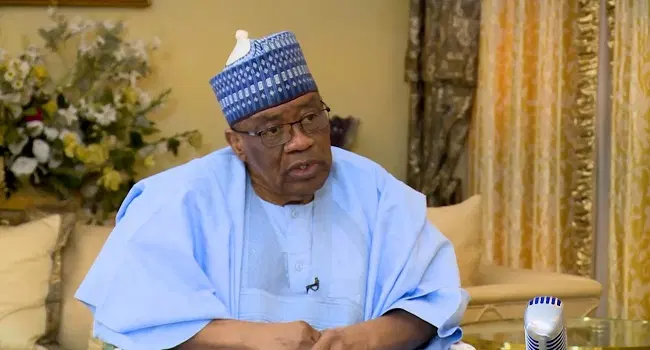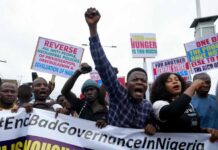The pressing issue in Africa remains leadership, Nigeria’s former Head of State, Ibrahim Badamosi Babangida, who toppled the military rule of immediate past Nigerian president, in1985 and ruled for 8 years, has in his autobiography “ A Journey in Service” launched on 20th February, 2025, gave his detailed documentation about his life in service and weighed the proud and blame moments, which goes to the root of nation building which remains fundamental in Nigeria politics today. Amongst everything that Rtd General Babangida said in autobiography, the eye catching moment is the annulment of June 12, 1993 general elections which descended the country in chaos, which could mean anything including collapse of nation building which is indispensable in country of cultural differences.
In an election which saw MKO Abiola of Social Democratic Party (SDP) emerged as the winner of presidential election, with Bashir Tofa of National Republican Convention (NRC) as the runner up. In his 420- page autobiography the retired army general recounted “Upon closer examination of the original collated figures from the 110 polling booths in the country, it was clear that he satisfied the two main constitutional requirements for winning the presidential election; mainly the majority votes and the geographical spread, having obtained 8,128,720 votes against Tofa’s 5,84,8247 votes and securing the mandatory one-third of the vote cast in 28 states of the federation, including Abuja.”
Related articles:
The former Head of State takes full responsibility of the decisions that were made under his administration having acknowledged that the annulment of the June 1993 elections was not his brainchild, and has emphasised that things would have taken a different turn. In the journey of nation building it could prove to be miscarriage of history, such that would go to the foundation of nation building. The issue of national interest in Nigeria has been going back and forth since independence, the foundation is shaky and that’s prove to be panacea of today’s crop of Nigeria’s problems. As the book launch of retired army general “A Journey in Service” bring together leaders of different calibre in one room to share common history that holds the country together the question of commitment to nation building will be re-echoed the loudest as the rest of Africa watches on.
Nigeria has gone past the event of June 1999 but its spirit and shadows remain in Nigeria politics, it is about the longevity and practicability of democracy not just in Nigeria but the rest of Africa. Three countries in West Africa already under military rule, the regional bloc, Economic Community of West African States (ECOWAS) has failed to persuade them to return to democracy. One of the core tenets of democracy is legitimate, and when legitimacy is undermined it attacks effectiveness of the governance. There have been talks by prominent people on how Africa progressive change will kick-start in Nigeria, this view might have been sustained considering size and potential in the country, but its sustainability is longer guaranteed as there are more questions than answers. In a time where Africa is seeking for self-reliance, issue of nation building will dominate the conversation when the continent’s progressive growth is prioritize among countries.

















